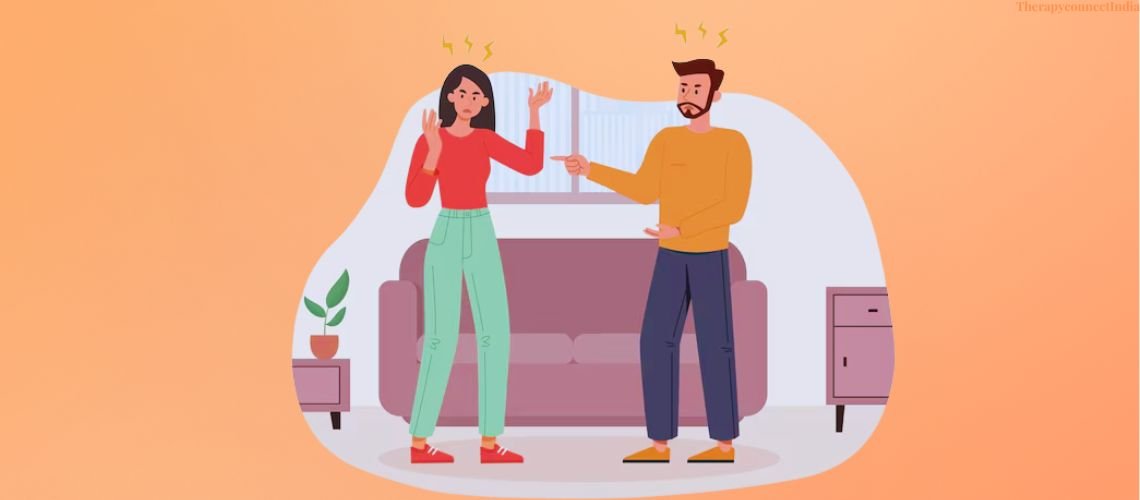Couples Therapy at Home: 7 Expert-Backed Exercises to Strengthen Your Bond

Relationships require effort, communication, and understanding to thrive. However, daily stress, misunderstandings, and emotional disconnect can create distance between partners. While professional therapy is beneficial, many couples can strengthen their bond through couples therapy exercises at home.
By incorporating relationship bonding activities into daily life, couples can improve emotional connection, enhance communication, and create a stronger foundation. These exercises are designed to foster intimacy, resolve conflicts, and prioritize mental health for couples. In this guide, we will explore seven expert-backed exercises that can help couples reconnect and build a healthier relationship.

A simple but powerful exercise, daily check-ins help partners stay emotionally connected. Many couples go through their days without taking time to understand each other’s feelings. By setting aside a few minutes each day to talk, couples can ensure they remain emotionally in sync.
Daily check-ins promote emotional safety and prevent small issues from turning into bigger conflicts. For more communication tips, The Gottman Institute provides excellent resources on strengthening relationships through open conversations.
Showing appreciation regularly can transform a relationship. Many couples struggle with feeling unappreciated, leading to resentment over time. This simple exercise helps couples recognize and verbalize gratitude for each other.
Expressing appreciation fosters positivity and emotional security. Research suggests that couples who regularly express gratitude feel more satisfied and committed in their relationships.

Eye contact is a powerful tool for strengthening emotional intimacy. In today’s fast-paced world, couples often spend more time looking at screens than each other. This simple exercise helps rebuild closeness.
Although this may feel awkward at first, it helps create a deeper connection and emotional closeness. Eye gazing can also reduce stress and increase feelings of love. If done regularly, it strengthens non-verbal communication between partners.

The Love Map exercise, developed by relationship expert Dr. John Gottman, is designed to help partners understand each other’s inner world better.
By consistently updating each other’s "love map," partners become more emotionally aware and supportive. You can find more relationship-building exercises on Gottman’s website.

Conflicts are inevitable in relationships, but the way couples handle them determines the strength of their bond. The Speaker-Listener technique helps improve communication during disagreements.
This technique helps prevent miscommunication, reduces emotional reactivity, and encourages empathy. By practicing active listening, couples can resolve conflicts more effectively and reduce tension in their relationship.
Writing can be a therapeutic way for couples to express their thoughts and emotions. A shared journal allows partners to communicate openly without the pressure of face-to-face discussions.
Journaling helps partners express emotions that might be difficult to verbalize and strengthens emotional intimacy. Relationship journaling prompts can be found on platforms like Psychology Today.

With the rise of digital distractions, many couples struggle with being fully present in their relationships. Setting aside intentional, tech-free time can strengthen emotional bonds.
This exercise promotes mindfulness and ensures that couples are fully present with one another. Mindful unplugging can significantly improve relationship satisfaction and overall well-being. Websites like Mindful.org offer great resources on practicing mindfulness in relationships.
Relationships require continuous effort, especially when external stressors like work, family, and personal challenges come into play. These couples therapy exercises are designed to create deeper emotional connections, improve communication, and enhance intimacy. Whether a couple is facing challenges or simply wants to strengthen their bond, incorporating these activities can bring lasting benefits.
Mental health for couples is just as important as individual mental health. Investing in a relationship through structured exercises fosters emotional security, mutual respect, and long-term satisfaction. While professional therapy is beneficial for deeper issues, practicing these activities at home can help maintain a healthy and fulfilling relationship.

Every relationship experiences ups and downs, but by prioritizing quality time, open communication, and emotional connection, couples can build a stronger and more loving bond. These relationship bonding activities provide practical ways to reconnect and improve intimacy without needing professional intervention.
By integrating these expert-backed exercises into daily life, couples can cultivate deeper understanding, resolve conflicts effectively, and enhance their emotional connection. Taking small, consistent steps towards strengthening the relationship can lead to long-lasting happiness and fulfillment.
For additional support, couples can explore professional therapy options through platforms like BetterHelp or seek resources on relationship wellness from The Gottman Institute. Prioritizing emotional connection and mental well-being is the key to a thriving and lasting partnership.